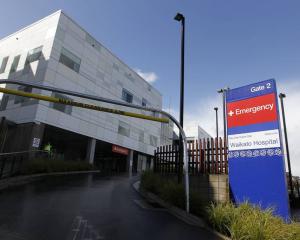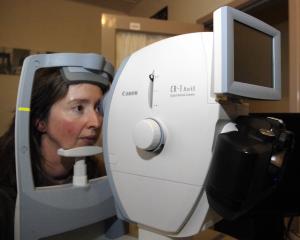
Chief executive Brian Rousseau said the board had made a good start on the six newly implemented targets, but still had much work to do.
Reducing the length of time spent in the emergency department would be the most challenging target, he said.
"It is the one that probably requires the most internal change, as well as external changes from the public in terms of usage of the emergency department for emergencies only."
This financial year, Otago was expected to admit, discharge or transfer 80% of emergency department patients within six hours of their arrival, but only achieved 70% during July, August and September.
The target rises to 95% by 2012.
Group manager Dr Colleen Coop said many things caused long stays in emergency departments and the causes could be complex.
The board was looking beyond the emergency department to find out what affected long patient waits, such as the reasons for no bed being available on a ward to which to transfer a patient.
Several projects aimed at improving waiting times have either been completed, are under way or start later in the year, including implementing a fast-track process for patients with less serious conditions, installing another X-ray machine in the department and introducing an early response team in the community for older people so fewer need emergency department care.
When it came to cancer treatment targets, Otago was "tops in the country", Dr Coop said.
Six centres nationwide provide radiation treatment for cancer and Otago is among the five that meet the target of treating all patients needing treatment within six weeks.
Patients treated in Otago, on average, were treated within three weeks or less, which means the board has already met its target for December next year.
Otago also exceeded national targets to have 84% of 2-year-olds fully immunised by next July.
The board has 87% immunised, so is well on the way to meeting the 2011 target of 90%.
A fully immunised 2-year-old is vaccinated for diptheria, tetanus, whooping cough, polio, hepatitis B, haemophilus influenza type B, pneumococcal disease, measles, mumps and rubella.
The board was making "about average" progress towards offering patients in public hospitals advice and help to quit smoking.
Fifteen percent of patients who were smokers were offered advice and help, against a target of 80% by next July and 95% by July 2012.
Otago is ranked 13th on its performance on providing better diabetes and cardiovascular services.
The assessments and checks, such as the free annual check for people with diabetes, are done by general practice.
Otago appears to be the worst in the country for improving access to elective surgery, but the data is inaccurate due to reporting issues created by the introduction of the board's new electronic data system.
Dr Coop said she believed the board would reach its target increase for elective surgery.
The quarterly health target results were released for the first time yesterday.
Health Minister Tony Ryall said the public wanted more accountability from district health boards.
"Public scrutiny helps improve performance and accountability.
That is why, for the first time, we are letting people know how their district health boards are doing in key areas."
Mr Rousseau said the health targets were a good idea.
"There is clear evidence that implementing health targets in the United Kingdom did improve those services.
"I look forward to seeing what it does in New Zealand."











